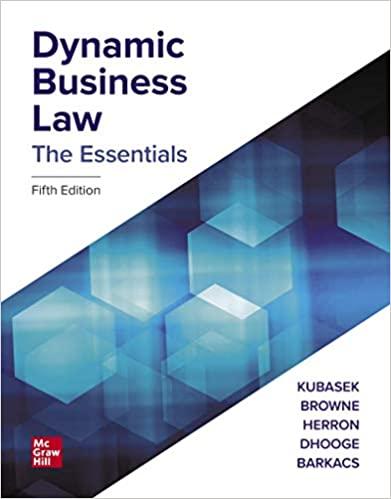St. Johns Holdings (SJH), the buyer, and Two Electronics, the seller, were negotiating the terms of a
Question:
St. John’s Holdings (SJH), the buyer, and Two Electronics, the seller, were negotiating the terms of a land sale through email. Over the course of the exchange, SJH sent four unsigned drafts of a letter of intent to Two Electronics. After the final draft, Two Electronics’s agent sent SJH’s agent a text message stating that Two Electronics would sign the letter if SJH signed first and provided a check. SJH signed the letter of intent and gave a check to its agent to deliver to Two Electronics’ agent. After the signing, the SJH agent sent a text to Two Electronics’ agent stating, “I have the signed LOI and check it is 424 [PM] where can I meet you?” The two agents spoke over the phone later that day and agreed that SJH’s agent would bring the signed letter and check to Two Electronics’ agent’s office. On the same day of the texts and phone calls, Two Electronics accepted a third party’s offer to buy the land. Two Electronics never signed the letter of intent or told SJH that it had sold the land to a third party. SJH sued to enforce the letter of intent arguing that it was binding based on the emails and texts between the agents and that those communications satisfied the essential terms of the statute of fraud. If you were the judge in this case, how would you rule? Can text messages fulfill the writing requirements of the statute of fraud?
Step by Step Answer:

Dynamic Business Law The Essentials
ISBN: 9781260253382
5th Edition
Authors: Nancy Kubasek, M. Neil Browne, Daniel Herron, Lucien Dhooge, Linda Barkacs





